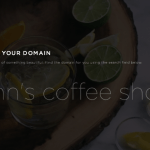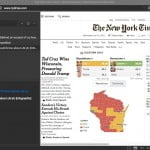Recent Event Included Participants from Top Academic Labs Including Harvard, MIT, NIH, and Yale
More than 450 Users Now Analyzing TCGA Data in the CGC
CAMBRIDGE, Mass.–(BUSINESS WIRE)–April 15, 2016–
Seven Bridges, the biomedical data analysis company, today announced results of the recent hackathon it hosted in collaboration with the National Institutes of Health (NIH) Big Data to Knowledge (BD2K) Initiative, which invited the cancer research community to build portable analysis tools and test drive the National Cancer Institute (NCI) Cancer Genomics Cloud (CGC) pilot. George M. Church, Professor of Genetics at Harvard Medical School and Director of the Personal Genome Project, was the keynote speaker at the event.
The hackathon took place April 1-3 in Cambridge, Mass. It brought together cancer biomedical researchers, data scientists, clinicians, students and professors from the Broad Institute, Carnegie Mellon, Harvard, MIT, the NIH, Yale, and more, with the objective of building new relationships and fostering collaboration in genomic cancer research.
Powered by Seven Bridges, the CGC is the first complete ecosystem to give cancer researchers immediate access to one of the world’s largest genomic datasets – The Cancer Genome Atlas (TCGA), which contains data from 11,000 patients across 33 types of cancer – and the computational resources to analyze it.
Since its launch in February, more than 450 researchers are now using the Seven Bridges CGC to analyze more than a petabyte of TCGA data alongside their own.
Seven Bridges recognized three hackathon participants for innovative projects using TCGA data – Goran Micevic, an MD/PhD candidate from Yale, Michael Kleyman, a PhD candidate at Carnegie Mellon, and Cameron Soulette, who is pursuing a master’s degree at UC Santa Cruz:
- Chromosome 5/Colon Cancer – Goran Micevic analyzed TCGA gene expression data to better understand genetic changes in colon cancer. His team’s analysis uncovered a “hotspot” on a region of Chromosome 5q where cancer-associated gene expression changes occurred.
- Interactive Notebook for Learning from TCGA – Michael Kleyman’s team worked on an interactive learning tool for gene expression data that will allow researchers to customize analyses from large sections of the TCGA dataset.
- Python Code Made Sharable Through the Cloud – Cameron Soulette and his lab partner Maximillian Marin worked on packaging their lab’s Python code so that it can be easily shared on the CGC with researchers anywhere. By running this tool and slashing analytic processing time in the cloud, they hope to empower cancer researchers to find new targets for drugs faster.
“We are thrilled to see how the NCI’s vision for the CGC is already being realized,” said James Sietstra, President of Seven Bridges. “In a little over a month since going live, hundreds of users from institutions around the world have gained access to TCGA data and the computational resources with which to analyze it. The success of the CGC hackathon is a testament to the power of the cloud to bring data and researchers together to make new strides in the fight against cancer.”
About Seven Bridges
Seven Bridges is the biomedical data analysis company accelerating breakthroughs in genomics research for cancer, drug development and precision medicine. The scalable, cloud-based Seven Bridges Platformempowers rapid, collaborative analysis of millions of genomes in concert with other forms of biomedical data. Thousands of researchers in government, biotech, pharmaceutical and academic labs use Seven Bridges, including three of the largest genomics projects in the world: U.S. National Cancer Institute’sCancer Genomics Cloud pilot, the Million Veteran Program and Genomics England’s 100,000 Genomes Project. As the NIH’s only commercial Trusted Partner, Seven Bridges authenticates and authorizes access to one of the world’s largest cancer genomics dataset. The company has offices in Cambridge, Mass.; Belgrade; London and San Francisco.
[“source-Venturebeat”]




